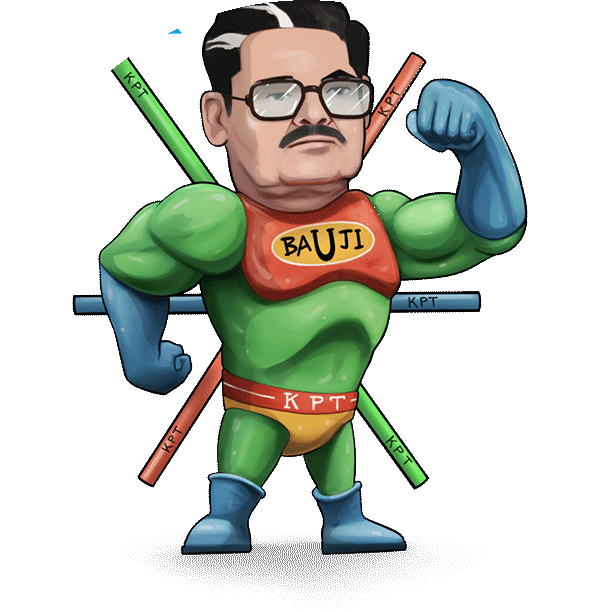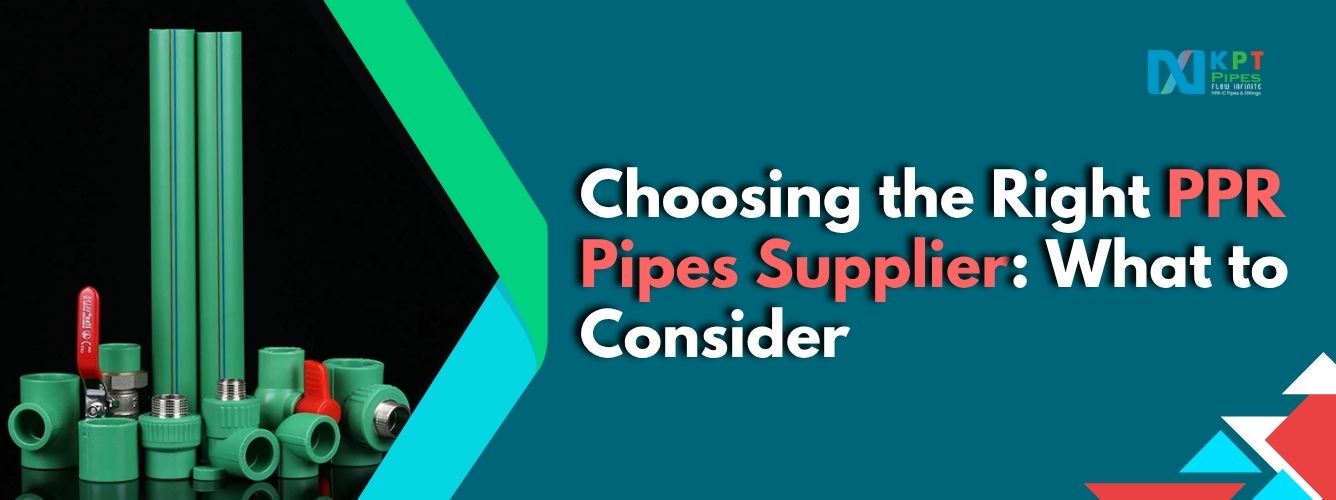When choosing the right PPR pipes supplier, it is essential to evaluate several factors to ensure that you choose a reliable partner. Regardless of whether you are undertaking a residential plumbing project or a large-scale industrial project, the quality and performance of the piping are critical. PPR pipes are known for their durability, economy and ability to withstand high pressures and temperatures, making them an excellent choice for modern plumbing systems. In this guide, we will explore the key aspects of choosing the best PPR pipes supplier with a focus on choosing a trusted pipe manufacturing company in India.
Table of Contents
1. Quality and Certification
The first and most important factor to consider when choosing a PPR pipes supplier is product quality. PPR pipes should meet international standards and certifications to guarantee that they meet safety and performance criteria. A reputable pipe manufacturer should be able to provide relevant certifications such as ISO 9001 or other industry-specific quality management certifications. These certifications demonstrate the manufacturer’s commitment to delivering products that meet high-quality standards.
When evaluating a supplier, ask about the raw materials used in production. High-quality PPR pipes are usually made of polypropylene resin, which provides better resistance to heat and pressure. A supplier that offers the highest quality materials will result in longer pipe life with fewer problems such as cracks, leaks or premature wear.
2. Reputation of the Supplier
Reputation plays an important role in choosing the right supplier. A reputed Pipes Manufacturing Company in India will have a long history of manufacturing reliable products and offering excellent customer service. Look for contractors with a solid track record and positive reviews from clients, especially in the plumbing industry.
Consider reaching out to previous customers or looking at online reviews and testimonials to learn about their experiences. A reputable supplier is likely to offer high-quality products and solve any problems you may encounter during your purchase.
3. Range of Products
An ideal PPR pipe supplier should offer a comprehensive range of pipes and fittings, including different sizes, thicknesses and types. Some suppliers specialize in specific applications, such as industrial plumbing, while others may offer a wider range of products. When choosing a supplier, make sure that they have the type of PPR pipe suitable for the requirements of your project, be it residential, commercial or industrial installations.
Also, ashttps://web.archive.org/web/20241205221607/https://kptpipes.com/blog/choosing-the-right-ppr-pipes-and-fittings-for-industrial-needs/k if the supplier offers a variety of pipe fittings such as elbows, couplings and tees, as well as other related products. A supplier with a wide range of products allows you to get all your plumbing needs from one place, which can save you time and money.
4. Pricing and Value for Money
Price is always a factor when choosing any product, but it is important to balance price and quality. Low prices may be attractive, but they may indicate substandard quality or poor manufacturing practices. Conversely, expensive pipes may not always justify the additional cost.
Look for a hose company that offers competitive pricing without compromising on quality. If you need a large quantity of pipe for your project, inquire about volume discounts. Paying a slightly higher price for durable and reliable products can sometimes be more cost-effective in the long run, reducing the likelihood of costly repairs or replacements.
Also, make sure the price includes all related services such as delivery and customer support. A good supplier will offer value-added services such as fast delivery, after-sales support and easy returns or exchanges.
5. Delivery and Lead Time
Another important factor is the supplier’s ability to meet delivery deadlines. Whether you are working on a small residential project or a large construction site, timely delivery is critical to avoid project delays. A supplier who consistently meets deadlines is a sign of their reliability and organization.
When choosing a PPR pipe supplier, inquire about their delivery time and delivery process. Ensure they meet your specific deadlines, especially for large orders or time-consuming projects. Some suppliers also offer expedited shipping options for an additional fee, which can be beneficial for urgent projects.
6. Customer Service and Support
Good customer service is essential in any supplier relationship. A reputable supplier should offer responsive customer support to address any concerns, questions, or issues that arise during the purchasing process. Whether helping you choose the right type of pipe for your needs or helping with technical problems after installation, having access to knowledgeable and friendly support can make all the difference.
In addition to pre-purchase support, ask about after-sales service. Can they provide you with technical assistance if you run into problems with the pipes? Do they offer installation instructions or troubleshooting support? These are important factors to consider when choosing a supplier.
7. Technology and Innovation
The best PPR pipe suppliers invest in modern technologies and innovative solutions to improve the quality and performance of their products. Look for a pipes manufacturer that uses advanced manufacturing processes such as automated production lines or state-of-the-art quality control systems.
Some manufacturers also offer eco-friendly or energy-efficient PPR pipes, which can be important if you’re looking for sustainable plumbing solutions. Suppliers who focus on innovation may also offer advanced pipe designs with better durability or resistance to corrosion, heat and chemicals, which can be critical in specific applications.
8. Warranty and Guarantees
A trustworthy PPR pipe supplier should offer a warranty or guarantee on their products. The warranty provides peace of mind knowing that if the product malfunctions or fails, it can be replaced or repaired at no additional cost. When evaluating potential suppliers, inquire about their warranty conditions.
A comprehensive warranty usually covers all manufacturing defects and guarantees a long service life of the pipes under normal conditions of use. If a supplier does not offer a warranty, it may mean that they have less confidence in the quality of their products.
9. Local Availability and Supplier Network
Depending on your location and project size, you may want to work with a Pipes Manufacturing Company that has a local presence or a robust distribution network. This ensures easy availability of products and shorter delivery times.
Choosing a local supplier can also provide access to faster service, such as quicker exchanges or immediate support. Additionally, a supplier with a strong network of distributors or dealers will ensure your project runs smoothly as you can easily obtain additional supplies as needed.
10. Compliance with Industry Regulations
In addition to ensuring quality standards, the supplier must comply with all relevant industry regulations and codes. Different regions may have specific standards for plumbing systems such as ASTM, BIS (Bureau of Indian Standards) or DIN standards in India.
Make sure the PPR pipe you purchase from the supplier meets local codes and industry standards for safety and performance. A reliable supplier will always keep up to date with the latest regulatory requirements and ensure that their products meet or exceed them.
Conclusion
Choosing the right PPR pipe supplier is critical to the success of any plumbing project. By considering factors such as product quality, supplier reputation, product range, price, delivery time, customer service and compliance with industry regulations, you can ensure that you choose a reliable and trustworthy supplier. Whether you are looking for PPR pipes for sale or need a Pipes Manufacturing Company in India that offers high-quality PPR pipes, taking the time to choose the right supplier will save you time, and money and ensure the longevity and efficiency of your plumbing systems.
FAQs
Q1.What are PPR pipes used for?
Ans: PPR pipes are commonly used in plumbing systems for residential, commercial and industrial applications. They are known for their resistance to high temperatures and pressure, making them ideal for hot and cold water distribution, HVAC systems and other fluid transport.
Q2.How do I know if the PPR pipes I’m purchasing are of good quality?
Ans: To ensure that you are buying high-quality PPR pipes, check for certifications such as ISO 9001 or other quality standards. In addition, inquire about the raw materials used, and the manufacturing process, and look for reviews or references from previous customers.
Q3.Why should I choose a local PPR pipe supplier?
Ans: Choosing a local pipeline company ensures fast delivery, local support and easier access to additional supplies when needed. It can also reduce shipping costs and delays and keep your project running smoothly.



